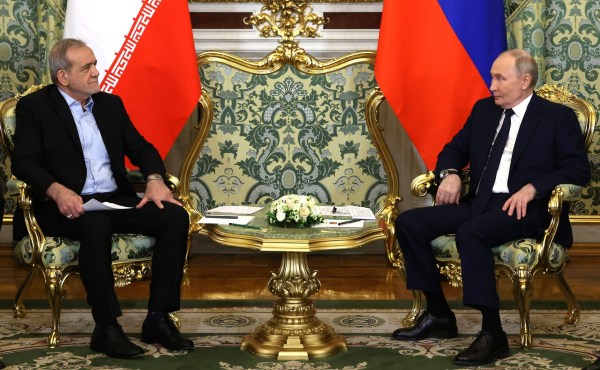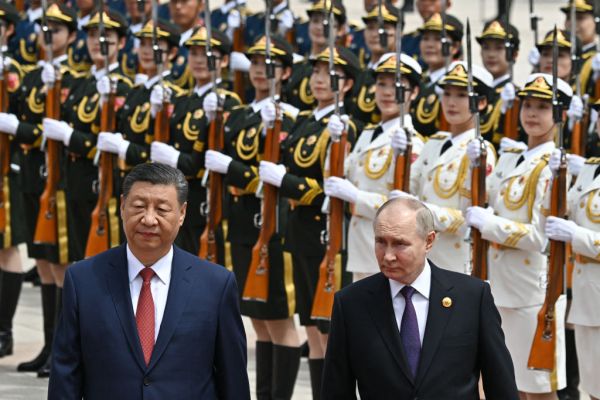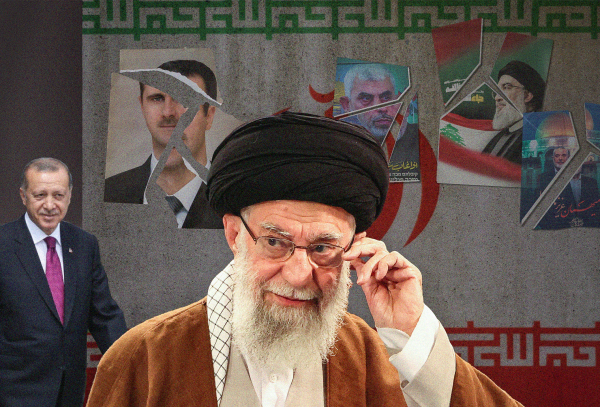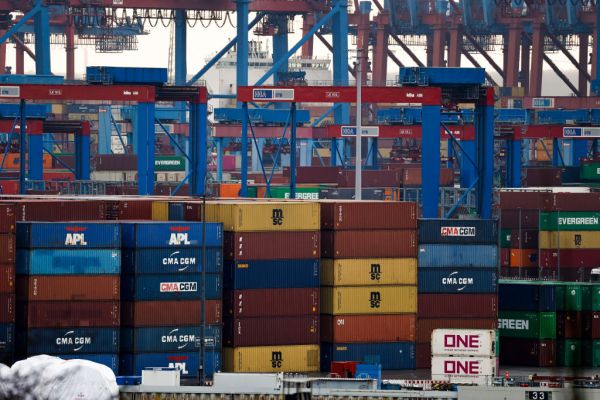“A fool throws a stone into a well and a hundred wise men can’t get it out,” is a popular Persian expression stressing the lasting consequence of actions taken by unlearned or inexperienced people for the rest of society.
The Biden administration is channeling this maxim—with former President Trump as the “fool” and the 2015 Iran nuclear deal as “the stone”—as its go-to response for why things have gone from bad to worse on Iran policy under President Joe Biden’s watch despite his promise of a “smarter” approach.
On the sidelines of a conference in Rome last October, Biden blamed his predecessor for the deadlock in negotiations and Iran’s atomic advances. “We’re continuing to suffer from the very bad decisions President Trump made to pull out of the JCPOA,” he said, using the acronym for the 2015 agreement, the Joint Comprehensive Plan of Action. Less than two months later, Secretary of State Antony Blinken amplified that assessment, saying, “we are where we are because of what I consider to be one of the worst decisions made in American foreign policy in the last decade, and that was getting out of the Iran nuclear agreement.”
While the former president did indeed cease U.S. participation in the JCPOA on May 8, 2018, the Islamic Republic’s enmity with America far predates this decision. Moreover, the main vectors for Iranian escalation since 2018—nuclear, missile, regional, maritime, and cyber—have all been problem areas in the past and are what make it such an outsized threat. They are not new aggressions Iran has chosen to develop or employ, as White House press secretary Jen Psaki incorrectly alleged days ago.
Should Iran’s post-2018 heightened uranium enrichment levels, growing uranium stockpile, use of advanced centrifuges, and other activities be seen as the problem, then it is worth recalling that Trump merely expedited what the JCPOA already ordained, just on more favorable financial terms for Washington. The JCPOA was at best, a time-out temporarily halting select Iranian nuclear activities. Leaving the JCPOA simply meant not choosing to pay for that time-out, which the longer the deal is in place, reads more like a permissive time-in.
While some non-proliferation scholars have called the JCPOA “a miracle,” one of the deal’s myriad shortcomings were these nuclear time-outs, technically known as “sunset clauses,” which pave the way for a rapid expansion of Iranian nuclear capacity. One example pertains to advanced centrifuges, which can be gradually employed starting six years after the deal is in effect. President Obama invoked these machines when he famously said that starting from year 13 of the deal, Iran’s “breakout” time could be near zero.
As indirect nuclear talks to resurrect this less than miraculous deal lurch into the new year with no agreement to date, a recent revelation by Axios confirms that the administration is predictably embarking on a domestic political messaging campaign that can be summarized as follows: We failed in our objectives because of Trump.
This strategy is likely to be employed for a range of suboptimal outcomes, which might include an agreement worse than the JCPOA, or a collapse in the talks that leads to war, a potential Iranian nuclear weapon, or a threshold capability in which the regime could end-up being a screwdriver’s turn away from the bomb.
The irony: Amid the political blame game, the administration cannot see how its conciliatory approach toward Iran over the past year has underwritten both Iranian diplomatic intransigence as well as “irreversible” nuclear knowledge and capabilities. After a year in office, Biden now owns the Iran policy impasse. The administration consciously chose to denigrate and shed leverage created by the coercive and punitive economic pressure policy of its predecessor. And throughout 2021, it failed to take a range of actions like diplomatic censure in multilateral forums or vigorous enforcement of existing U.S. oil sanctions that could have improved the chances of even its stated aim of resurrecting the JCPOA.
Year one of the Biden administration’s Iran policy on non-nuclear matters has similarly failed to convince Tehran that Washington means business. The administration’s delisting of the Iranian-backed Houthi rebels in Yemen has not brought peace to the Arabian Peninsula. Allowing Iran to pay U.N. dues using frozen funds has only emboldened its desire to access these revenues and press U.S. allies holding them to violate sanctions. And Washington’s vacillation between occasional military responses and turning a blind eye to increasing Iran-backed escalation and attacks on U.S. positions in the heartland of the Middle East has not deterred Iran and its constellation of proxies, the “Axis of Resistance,” from engaging in more attacks. Iranian officials continue to desire and work toward evicting America from the region through a thousand cuts.
Rather than squander precious time laying the groundwork for a domestic political blame game, the administration should be developing tools that can make diplomacy more efficacious and its military deterrence more credible. This means enforcing existing sanctions on the Islamic Republic, including on its oil sales, smuggling, and regional trade networks, as well as convening a previously threatened special session of the U.N. nuclear watchdog to censure Iran. On the military front, this means working with regional partners to make sure they have the necessary air and missile defense systems to devalue and offset Iran’s growing long-range and precision-strike capabilities and those of its proxies, as well as actively interdicting the flow of arms from Iran that continue to keep regional hotspots like Yemen, Syria, and Iraq engulfed in conflict.
Staying the political warfare route would not only be tantamount to a retreat from the promise of “nonpartisanship” in U.S. foreign policy that Blinken promised in his first major speech in 2021, but a true fool’s errand to begin 2022 with.
Behnam Ben Taleblu is a senior fellow of the Foundation for Defense of Democracies (FDD) in Washington D.C., where he focuses on Iranian political and security issues.









Please note that we at The Dispatch hold ourselves, our work, and our commenters to a higher standard than other places on the internet. We welcome comments that foster genuine debate or discussion—including comments critical of us or our work—but responses that include ad hominem attacks on fellow Dispatch members or are intended to stoke fear and anger may be moderated.
With your membership, you only have the ability to comment on The Morning Dispatch articles. Consider upgrading to join the conversation everywhere.